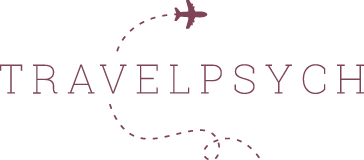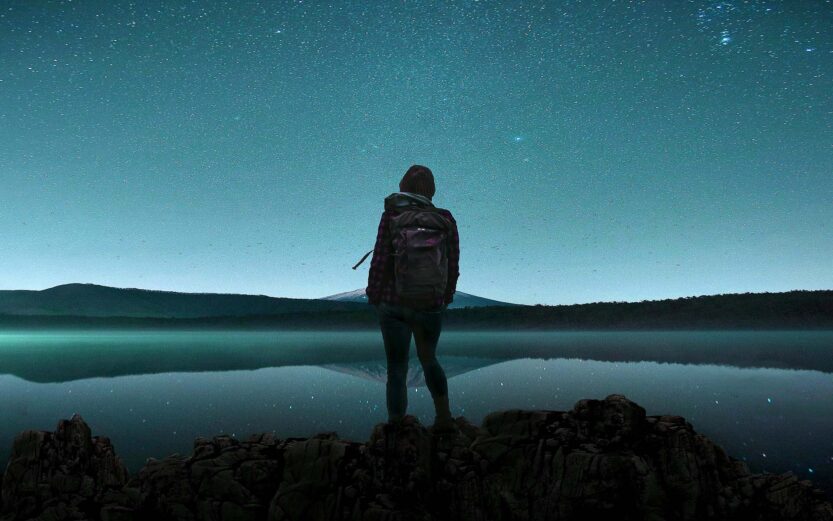

“You will go alone, is that ok?”
My boss told me. And there I was paralyzed.
I have never thought about that before, but this would have meant to take the train by myself, change the train by myself, present the project by myself, eat by myself, walk by myself. Alone.
Usually, to “be alone” has a negative meaning.
Memories of our childhood come back, when our friends did not choose us to play for a team and we felt marginalized, making us feel embarrassed and inadequate as adult.
Consequently, during a journey our mind will be crashed by images of us in solitude. As we were unable to face “a so big challenge”, or we were repulsed by the idea of “being alone”.
Yet, during this brief travel, I understood what “solo travel” really meant.
Despite the sense of duty, the adrenaline, the embarassement of speaking in elementary French and the fear of taking the wrong direction, eventually I reached my destination.
In the city centre I noticed a café’s outdoor, simple and welcoming.
I sat down and I started looking around. Slowly, I felt that the uncomfortable paralyzing feeling, the shame and the fear, gradually softened. I was able to smell the mustard scent from the little shop in front of the café; to listen to the music of the street violinist at the end of the square; to meet the eyes of the passers-by and to get lost among the gothic and roman facades of the houses holding the square.
I was there by myself. However, I was not alone, not marginalised, not putted away.
I took the glass of sparkling wine and made a toast to me, by myself in Dijon, the heart of the fascinating Bourgogne.
To solo travel means to be together with yourself
After Bourgogne, “to solo travel” turned into a new alternative to go around the world.
In fact, being “alone” in a journey is a choice, maybe scary at the beginning but, if taken consciously, turns out to be a wonderful personal choice of self-development.
So, here’s some thoughts for an easy start and some practical tips for solo travellers:
The first solo journey is the most meaningful. It is the one that makes you experience vulnerability while managing a new situation, the fear of making a choice, the discomfort of communicating with strangers in a new language.
Solo travel is a great challenge, but it is also a deep act of self-confidence.
The strong link between traveller and self-esteem stands out even more when alone. We have to trust our instinct, to admit our limits, to overcome our fears in order to keep going.
We have to answer to just one person: ourselves.
Briefly, if hungry we stop; if tired we arrive to a place and we choose where to sleep, how long and where we want to stay.
We feel within ourselves what upsets us, what entertains us, what shocks us.
The journey turns into a flexible path, where freedom of choice goes along with the freedom of making mistakes and changes, without the feeling of being forced towards somebody else.
We learn to feel and respect our needs; to reflect on our thoughts; to adapt the rhythm of travelling to ourselves.
Solo travel let us discover our independency, our courage overcoming shyness and our ability to face unexpected events. We see ourselves as resilient, our own companion, suitcase and compass, creators of our own choices.
Here we are, walking among people, looking around and locking others’ eyes, waiting for the bus, figuring out where to eat, sleep and where to go the next day.
The only needs are the ones we have; we are the catalysator of our own choices because we are our own travel companion. Ours are the fears to face, the insecurities to manage, the dreams to realize, the resources to use.
Step by step, we discover where our fears are located but also our recklessness, making our typical sleepy sides emerge, and observing ourselves from a new perspective.
It is not easy. Tiredness, discouragement and worries are an important side of a solitary journey. In these moments, we will feel even more strongly our inner travel companion: he will listen to us, support us, motivate and comfort us.
Solo travel teaches us how much our own company is pleasant, how it is precious to believe in ourselves, and when it is important to listen to ourselves.
When we are by ourselves in a place, it does not mean that we will not communicate with other people. We will go out looking for information, sharing news, asking for tips.
Feeling more confident, we learn to listen to our instinct, we will more incline to interact, and an extraordinary side of solo traveling will emerge: the connection with the Other.
Our accent, the way we talk, our clothes, our skin or hair colour, will be pretexts to get closer. Without even noticing it, we will talk, share anecdotes and take pictures together.
For example, the boat or bus trip, the night at the hostel or the party on the beach, even the stopover, will be all opportunities that will push us to get closer to the others.
Those people met on our solo path, will turn into our travel companions for a moment, a day or a night, but they will show us the World is more generous, inviting and friendly than we imagined.
At the end, we will learn that the fear of judgement is just a worry, that our shyness is just a defence mechanism, that we can choose how to show ourselves independently on how they “see” us at home.
Even if we solo travel, we are the one deciding on how to be “alone”: it is not that we are “not able to be with other people”, it is just a free and conscious choice.
A solo travel turns into our treasure once back home, because every experience will have an outcome on our daily life.
Do you remember that time you overcome an unexpected event? Or when you stopped to talk to that person that told his story? And what you saw, tasted and experimented? Would you ever have thought you would be able to do it?
When the journey ends, the rediscover of ourselves in our daily life starts.
Because the real travel was not the destination, but the path.
We see ourselves as the owners of our lives, responsible for our own choices, brave in facing our fears, able to overcome problems.
And if we did it somewhere else, we will be able to redo it also back home.
If solo travel scares you but you want to try it, my tip is to firstly go to a familiar nearby destination.
Test yourself in a place where they speak your language and understand your culture. Try to stay away for a weekend in order to discover what it means to make choices by yourself, facing unexpected events – because it will always happen during a travel – eat by yourself, turning the boredom into peace of mind.
Then, once you feel ready to experiment a farther destination, get informed: educate yourself about the history, the culture, the rules and the usages of your travel destination, in order to understand how to behave (for example in cult places).
When you are at you place of destination, focus on one issue at the time.
Recognize the small goals you’ve reached, appreciate your small victories, such as the arrival to the hotel, asking for directions, eating alone in a restaurant.
Your safety is important. Therefore, remember to buy an insurance policy, to write down the emergency numbers and register to the website of the Ministry of Foreign Affairs of your country where to communicate your departure.
Is solo travel dangerous? Yes and no. We will be responsible for ourselves, we will be careful, and we will learn on how to listen to our instinct, like when we walk alone in a less familiar area of our city. To sum up: the precautions are always the same.
We leave by ourselves in order to discover freedom, to take our space, to leave behind problems, to not feel limited by the others.
So, pack yourself and go. When you will get back, you will shout proudly:
“I did it!”
Bianchi, C. (2016). Solo holiday travellers: Motivators and drivers of satisfaction and dissatisfaction. International Journal of Tourism Research, 18(2), 197-208.
Una psicologa con la valigia sempre in mano.
Benvenuti nel blog di Psicologia del viaggio.
Una psicologa con la valigia sempre in mano.
Benvenuti nel blog di Psicologia del viaggio.
© 2020 - Travelpsych. Tutti i diritti riservati.travelpsych.world - chiara@travelpsych.worldPrivacy Policy - Cookie Policy
Design by A Digital Else.